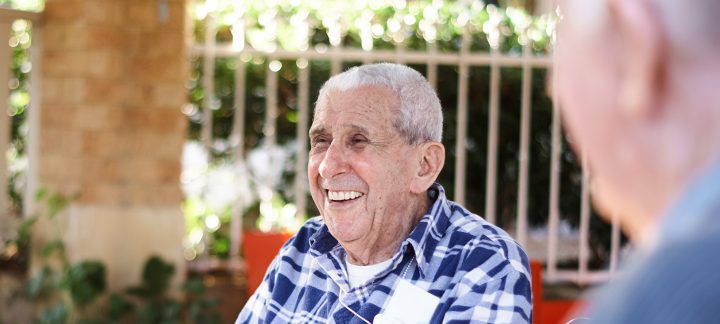When you choose Mercy Health, you are choosing to live life your way. Whether you’re looking to pursue long-held passions or explore something new, we honour each resident’s unique story and encourage exciting new chapters.
You’re also choosing a commitment to the highest quality care. Mercy Health residential aged care homes meet exacting national accreditation standards and our frequent internal improvement measures make sure residents are equipped to live safely, actively and to their full potential.
Our approach to care
Care is about more than physical comfort and assurance. We believe care encompasses every aspect of physical, social, emotional and spiritual wellbeing. Ask yourself: is there something you would like to do? Our dedicated and compassionate care teams will support you to achieve your goals and maintain an independent and active lifestyle.
By respecting each person, we aim to ensure residents have the best day possible, every day. We always:
- value each person’s life story
- encourage independence and support you to live life to your fullest potential
- partner with residents, families and loved ones to nurture individual health and emotional, social and spiritual wellbeing
- welcome each person into a home where you feel safe, comfortable and valued
- enable you to discover and fulfil opportunities to live an enriched and meaningful life.
Standards, accreditation and improvements
Every Mercy Health aged care home is accredited to the exacting standards of the Aged Care Quality Agency
Aged care homes are required to meet all standards and their outcomes to maintain accreditation status in accordance with the Aged Care Quality Agency. Accreditation provides assurance that each home meets a level of performance in delivering aged care services, and ensures government funding continues to provide these services.
Assessments are conducted through both scheduled and unannounced visits, which are known as ‘assessment contacts’. During the visit, assessors review documented procedures, observe practices at the home and look at residents’ records and other documents including:
- staff rosters
- incident reports
- care plans
- quality improvement registers
- complaints registers.
Assessors talk with residents to gauge their satisfaction with the care and services being provided by the home. Staff are also interviewed about rosters, skills distribution and training and development opportunities. Evidence of a home’s performance against the Accreditation Standards is based on multiple sources and must be verified, with the focus on resident outcomes.
A full re-accreditation audit occurs at least every three years and includes a review of all standards and outcomes. Announced and unannounced assessments occur continuously in the interim period between full audits, although only a limited number of outcomes are reviewed during these visits. All outcomes must be met at all times to ensure ongoing accreditation.
Ongoing commitment to high-quality experiences
Our well-established quality system measures processes and systems to identify opportunities for improvement. We monitor a range of data points to ensure high-quality experiences for residents. These include, but are not limited to:
- feedback data: complaints, feedback and suggestions are sourced from residents and families. These are used to improve the way we deliver care and services.
- clinical indicators: we strive to achieve results within the recommended ranges for indicators such as fall prevention and weight-loss management, and develop strategies to achieve the outcomes.
- lifestyle indicators: we measure such things as the time it takes for maintenance to be completed, so residents continue to receive effective and efficient service.
- ongoing internal audits: in addition to meeting the accreditation requirements of the Aged Care Quality Agency (outlined above) we internally audit clinical care and lifestyle services to maintain our expected standards. These results are tracked over time and used to identify opportunities for improvement at local and organisational levels.
- resident and family surveys: we survey residents and their relatives to understand and improve the experience of our homes. This includes food services, right to privacy, satisfaction with lifestyle and activity options and meeting spiritual and cultural needs.
- incident data and assessment: all actions or conditions that had the potential to, or did, lead to unintended or unnecessary harm to a resident (or visitor) are recorded and reviewed to:
- ensure the situation has been appropriately remedied for that resident
- identify opportunities for improvement and whether the process should apply to all homes.
- agency audits: outcomes from accreditation audits, and announced and unannounced visits are used to improved systems and processes at a local home and organisational level.



